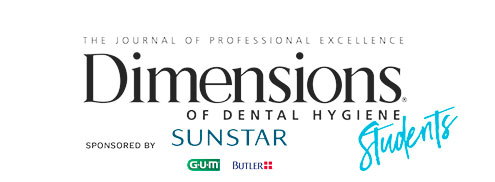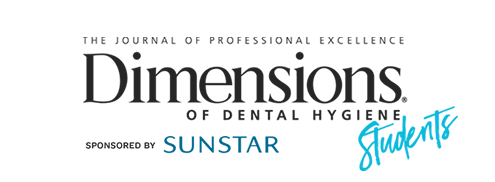Delivering Risk-Stratified Care
By Sean G. Boynes, DMD, MS; Brian Nový, DDS; and Carrie Peltier, MS, MPH
 A common methodology employed within oral health disease management is risk-stratified assessment and treatment. As explained by the American Academy of Family Physicians, “Risk-stratified care management (RSCM) is the process of assigning a health risk status to a patient, and using the patient’s risk status to direct and improve care. The goal of RSCM is to help patients achieve the best health and quality of life possible by preventing chronic disease, stabilizing current chronic conditions, and preventing acceleration to higher-risk categories and higher associated costs.” In dentistry, risk assessment is most commonly used to evaluate caries or periodontal disease activity, and serve as a foundation for care goals and patient communication. In many offices and clinics, dental hygienists are a primary driver of caries risk management implementation, as research indicates that more than 98% of dental hygienists believe risk assessment is a key part of their practice. Given the emergence of risk-stratified care delivery, this article will review risk-assessment methodologies, practice characteristics and workflow implementation.
A common methodology employed within oral health disease management is risk-stratified assessment and treatment. As explained by the American Academy of Family Physicians, “Risk-stratified care management (RSCM) is the process of assigning a health risk status to a patient, and using the patient’s risk status to direct and improve care. The goal of RSCM is to help patients achieve the best health and quality of life possible by preventing chronic disease, stabilizing current chronic conditions, and preventing acceleration to higher-risk categories and higher associated costs.” In dentistry, risk assessment is most commonly used to evaluate caries or periodontal disease activity, and serve as a foundation for care goals and patient communication. In many offices and clinics, dental hygienists are a primary driver of caries risk management implementation, as research indicates that more than 98% of dental hygienists believe risk assessment is a key part of their practice. Given the emergence of risk-stratified care delivery, this article will review risk-assessment methodologies, practice characteristics and workflow implementation.

